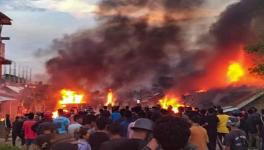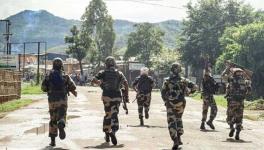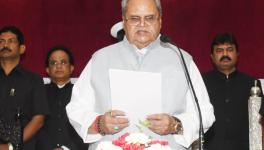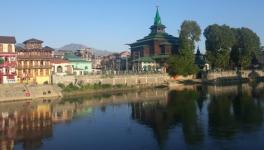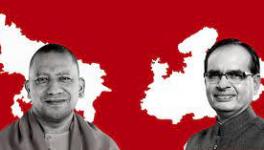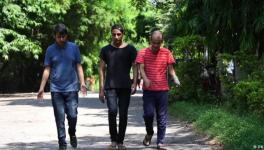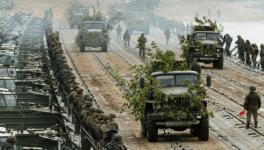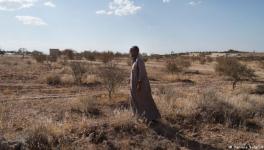Peace and Conflict Cannot Coexist in Kashmir
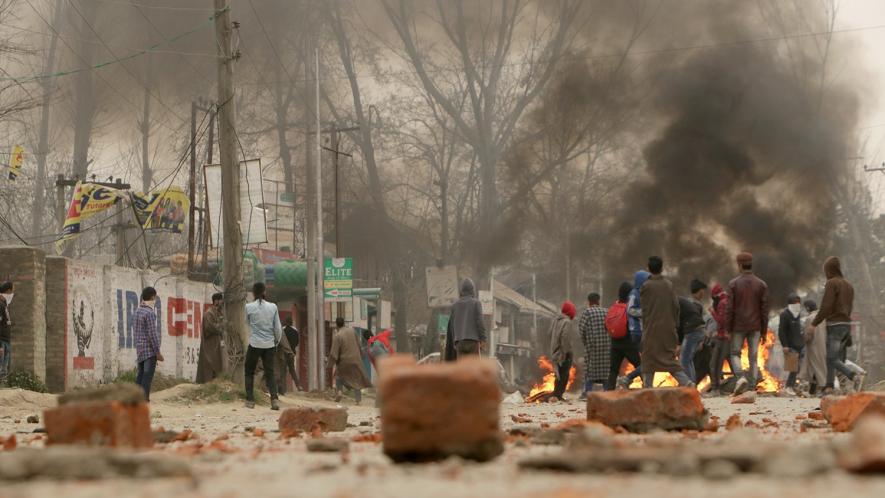
Writing on this Eid evening, which I did not have the heart to celebrate while all Kashmiris are detained by an open-and-closed jail, while they are officially or unofficially detained, it struck me that there is a marked difference between ‘celebrating’ and observing Eid.
The televised shots that government agencies and most television channels splashed of namaz being offered in the Valley should not be conflated with a celebration of Eid. Yes, the Kashmiris, like all Muslims, observed Eid this year but they had nothing to celebrate.
Curfew lifted for a couple of hours cannot be expected to have brought any real relief to those who have been caged in their homes. They have no Internet or mobile connectivity and, of course, along with them the traditional norms of human connectivity also were shown the door.
Government reports of Kashmiris queuing at ATMs should be viewed against the backdrop of facts. A large section of the Valley’s population is daily-wage earners and with the ongoing restrictions their sources of income have disappeared. Those Kashmiris involved in the tourism industry and the fruit export industry is also wrecked.
Traders of all kinds of goods and shop-owners are suffering huge losses. Business avenues are closed off completely, which directly affects the economic capacity of Kashmiris. So much that even the basic necessities are difficult to access for a large section of the population. Sad and forlorn, they await anxiously, as apprehensions continue their hold over them.
What stands out is the fact that not all mosques in the Valley were open for the Eid namaz this year. This isn’t something new. It has happened in the Valley over the last few years. In itself that has had a deep impact on the psyche of Kashmiris. When news of mosques remaining locked on Eid first came, Kashmiris would sit back in immense sorrow, sigh, and say, ‘Sabr…sabr’ (patience, patience)
Sabr is the only way to keep going in these times; equipping oneself with patience is the only way to overcome the tremendous burden of hardships foisted on them. Mothers and fathers visit graveyards and hold ‘conversations’ with their loved ones who are buried in the soil of the land. After all, there is no dearth of graves and graveyards in the Valley.
Upset and bruised are the Kashmiris, as their situation turns more bleak every passing day. Yet, ironically, the typically sarkari (official) reports keep insisting that the situation is “under control”, that “normalcy” is on its way back and that all is at peace in the Valley.
The fabled development for Kashmiris is nowhere in the picture when they have been pushed into the Dark Ages. Today’s version of the Dark Ages does not even allow people to walk around in their own neighbourhoods. They are under the control of boots stomping around the Valley. They are surviving under the glare of soldiers. Already Kashmir was the most militarised regions in the world, and now it has worsened.
With the local political leaders arrested, detained or under house arrest, the voice of the Kashmiri has been completely throttled. What is worse, they have been silenced for the rest of the country does not even want to hear his warnings and forewarnings. These are in the context of the subcontinent. The scholar Abdul Gani Bhat had once shared with me his opinion that metal detectors cannot detect the anger and alienation of the Kashmiri people. And, that weapons cannot win wars against discontent among people. “Paradise,” he had told me, “is not lost to Milton but to the people of Kashmir.”
It should be unnecessary to state that the sentiments of the people of Kashmir need to be taken into consideration. The effect of what India has done in Kashmir are also bound to sweep across the world in different ways.
Today India and Pakistan have no real escape routes. Their only option is to work on their concerns. After all, peace and dispute cannot coexist. Nuclear weapons only add an alarming dimension to the region’s stability. The need of the hour is to address the deepening alienation of the Kashmiri people and the political uncertainty hanging over the Valley.
India cannot withdraw its troops from the Ladakh region and Pakistan cannot withdraw from the Gilgit areas. Yet, why can the military and the troops be withdrawn from our towns and villages? This, too, was said to me by Bhat.
In another interview, the Hurriyat’s Maulana Abbas Ansari, was categorically told me that no lasting solution to the Kashmir crisis would be possible without taking into consideration the views of the Kashmiris. “No solution will ever be possible till the Kashmiri is not heard and not asked what he wants. And it is the interest of both the countries, India and Pakistan, that a solution is worked on as soon as possible.”
Humra Quraishi is a journalist and commentator based in Gurgaon. Views are personal.
Get the latest reports & analysis with people's perspective on Protests, movements & deep analytical videos, discussions of the current affairs in your Telegram app. Subscribe to NewsClick's Telegram channel & get Real-Time updates on stories, as they get published on our website.










